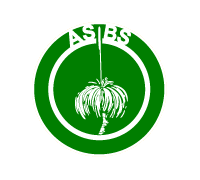
President's Report
ASBS Newsletter 93, December 1997
[Essentially as delivered at the 15th Annual General Meeting in Adelaide]
Council
You have a very active council working on your behalf. In particular, John Clarkson as treasurer has invested an extraordinary amount of time and effort into our finances. The result is a diverse and secure range of investments as he explains elsewhere.
John has also chased lapsed subscriptions and worked tirelessly on those day-to-day activities that keep the society alive and kicking. I would like also to mention Robyn Barker who has not only worked energetically (with the entire organizing committee) to bring us the Adelaide conference, but has assisted John and I in administering the society through some testing issues. It is a reflection on the quality of the council (and our Public Officer, Andrew Lyne) that all problems have been resolved without so much as a tremor in the society. I'd like to give special thanks too to the Newsletter editors, particularly Philip Short over the last year, for continuing to produce timely and enticing newsletters. I have no doubt Bob Hill will only enhance this tradition.
Chapters
I have been pleased to see some chapters responding to my call for regional activity in the society. Many conveners have assisted John Clarkson in chasing up members whose subscriptions have inadvertently lapsed. I have begun to use conveners as a way of distributing information electronically in between newsletters and meetings. Not all ASBS members are hooked to the net and conveners act as practical points of distribtition. It means more work for conveners but it also means a more active and more informed society. The chapters have an important role in the discussion and resolution of issues. If your chapter is not responding to your needs, please contact the convener and if possible offer to help.
Highlights
Other highlights of the year include the selection of the first recipients of the Hansjorg Eichler Research Fund awards; the planning, organising and successful execution of ASBS conferences; and the re-examination of our roles and functions brought about by the establishment of the Society of Australian Systematic Biologists. The various discussions I have had with members about the new society have illustrated to me the strength of ASBS. Whether these members wanted to stand alone or to merge, they all felt that ASBS had a lot to offer its members as well as any fledgling society. The debate has been tough but the focus has always been on the betterment of plant systematics in Australia. Personally I think such debates are healthy and invigorating for the society. No matter what the final outcome, questioning our role and functions can only lead to good. I don't see them as divisive. What I see as divisive are apathy or conspiracy behind closed doors. As I have said all along, I will represent what the council perceives to be the desires of the membership. I will do so responsibly and with due reflection.
Nancy T. Burbidge Medal
Finally, a new initiative of the council. I'm happy to announce the establishment of the Nancy T. Burbidge Medal to honour an ASBS member who makes a long standing and significant contribution to Australian systematic botany. The Nancy T. Burbidge Memorial Lecture will be delivered in response to being awarded the medal. As has been done previously for the lecture, the local organising committee for the annual conference will a make a recommendation to the ASBS council. The medal need not be awarded every year. The first medal will be presented in 1999.
The future
It is surely a sign of the society's maturity that we now have three ways of recognizing excellence: the Hansjorg Eichler Research Fund for students and newly established botanists; the Nancy T. Burbidge Medal for long-standing and significant contributions to Australian systematic botany; and (when ratified) honorary life membership for outstanding contributions to the society. Looking outwardly, we need to address the issues raised at the Future of Systematics Forum. Some of these will be the responsibility of myself and ASBS (strategic letters, meeting with the minister, collaborating with other societies). Others require each member to do what they can to enhance the profile of systematics. I've pontificated on this topic before, but we all need to take responsibility for "selling" systematics in our own institutions and to various levels of government. It is important too that we look at small scale and innovative solutions to funding and pursuing systematics research, rather than relying on some "big solution". As Hugh Possingham stressed in his opening address to the conference, we must be positive and passionate about systematics, as a society and as individuals.
Tim Entwisle